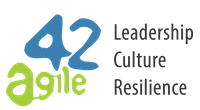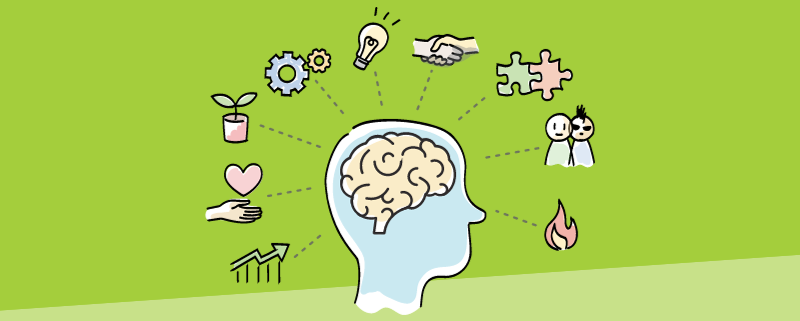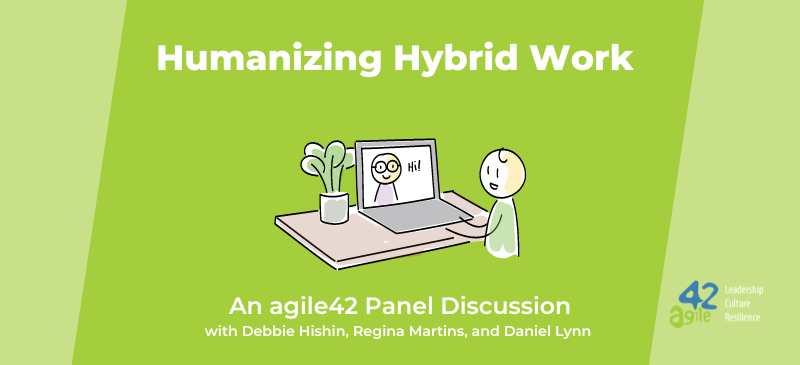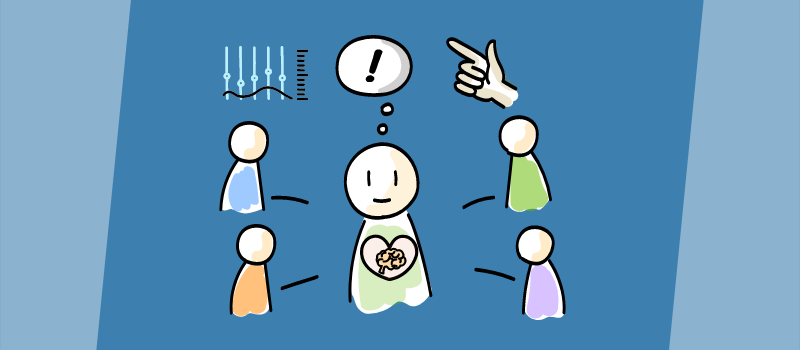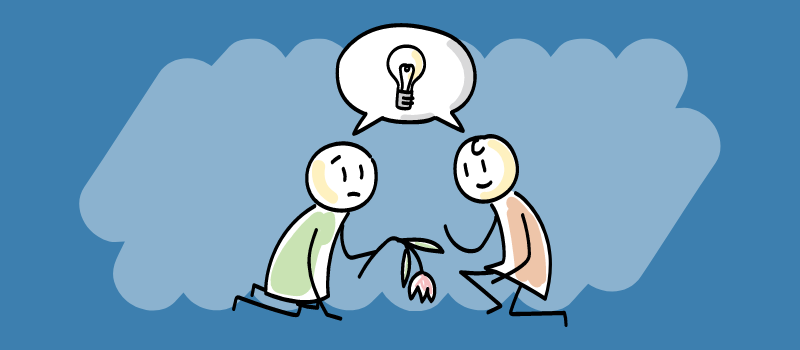Mastering Soft Skills for Effective Work: Your Path to Professional Excellence
Today’s economic markets are dynamic, and this means the workplace also needs to be. Fast problem solving, decision making and collaboration with colleagues and customers play an important role. To be successful, employees need to bring more than just technical expertise alone. The ability to effectively navigate complex interactions, communicate with clarity, and collaborate effectively with others is essential. These abilities, often referred to as soft skills are critical to boost collaboration and to develop workplaces that enable people to work effectively and with ease.
In this comprehensive guide, we will examine ten essential soft skills that can transform your professional journey more closely. Whether you’re an HR professional looking to enhance your company’s capabilities or an individual eager to boost your career, this article offers insights and actionable steps to work on your soft skills.
What Are Soft Skills?
For every job you need a specific set of skills to fulfill your role and deliver value to customers. While these skills could be industry related and not applicable in other work contexts, there are some skills that are independently useful in every workplace. These so-called soft skills are a collection of interpersonal, social, and communication abilities, moral qualities, attitudes and mindsets as well as social and emotional traits.
Soft Skills vs Hard Skills
Hard skills are also known as professional competence or technical competence. They are the abilities of employees to independently and responsibly master tasks and issues in accordance with job descriptions. This is an expertise with corresponding contextual knowledge. It ranges from proficiency with specific software to understanding of emergency medical procedures. Through your education, training, certifications, and work experience, you can acquire relevant hard skills.
Besides hard skills, all jobs also require a combination of soft skills. Soft skills describe a set of social and interpersonal abilities, personal qualities and work-related attitudes that may be useful or necessary for shaping social interaction. Just a few examples include communication, patience, teamwork, and resilience. Soft skills can be acquired through life and work experiences or they might be personality traits.
Examples of Soft Skills
Soft skills describe a wide range of abilities and qualities. Some of the most important and common ones are listed below.
- Collaboration is the ability to use various abilities to work together toward shared objectives. It encourages teamwork, creativity and a sense of belonging.
- Problem solving is the ability to analyze challenges, devise effective solutions, and implement them decisively. It enhances your ability to overcome obstacles and drive continuous improvement.
- Emotional intelligence is the ability to understand, manage and navigate one’s own and other people’s emotions. It results in more solidified bonds, efficient communication and improved conflict resolution.
Why are soft skills so important?
Soft skills are general characteristics that help people thrive in the workplace, no matter their seniority level, role or industry. These skills are the difference between being technically able to do the job, and being able to do it well. This is why many job ads state requirements like “communication skills” or “a problem-solving attitude”.
From the perspective of a recruiter, soft skills help to select qualified applicants who satisfy the organization’s standards. When choosing between two candidates with a very comparable academic and professional background, the candidate who is more flexible and collaborative, for instance, is more likely to get hired. Some companies also hire for potential, not just experience and knowledge. They look for applicants with soft skills like adaptability and willingness to learn.
Last but not least, soft skills help analyze the cultural fit of candidates. For instance, if an organization values accountability and initiative, it is crucial that potential hires are not scared to take ownership of their jobs, are decisive, and have a good approach to problem-solving.

Top Soft Skills Employers Look For and How to Improve Them
In the following list, you can find soft skills that are relevant to most of today’s workplaces. Read why they are important and how you can improve your respective soft skills.
Soft Skill #1: Effective Communication
Effective communication ensures mutual understanding. It entails expressing thoughts, ideas, and facts succinctly and clearly. Clear communication reduces misinterpretations, improves teamwork, and fosters wholesome connections to boost productivity, efficiency, and morale at work.
If you want to improve your communication skills, start with diving deeper into the following aspects of communication:
- Active listening: Pay close attention to what others say, ask clarifying questions, and provide thoughtful responses.
- Practice empathy: Put yourself in the shoes of your audience to tailor your communication to their needs.
- Seek Feedback regularly: Ask for feedback on your communication style and make adjustments, if needed.
Our e-learning course Giving and Receiving Feedback offers a good starting point to improve your communication skills.
Soft Skill #2: Adaptability
Adaptability is the ability to thrive in changing circumstances. Adaptable people view change as a chance for personal development. This kind of flexibility creates resilience and improves your ability to cope and even thrive in any situation.
In order to foster your adaptability, look for the following:
- Embrace Ambiguity: Get comfortable with uncertain situations and focus on solutions rather than problems.
- Continuous Learning: Pursue new knowledge and skills to stay relevant and adaptable in a shifting landscape.
- Mindfulness Practices: Develop practices like meditation to enhance your ability to remain composed amid change.
Soft Skill #3: Collaboration
Collaboration is the process of working with others to achieve shared objectives while utilizing individual skills. Innovation, creativity, and a sense of community are fostered by collaborative abilities within teams.
To gain, maintain and improve collaboration skills, start with the following:
- Build Trust: Establish trust through reliability, honesty, and consistent follow-through on commitments.
- Appreciate Diversity: Embrace diverse perspectives to enrich collaborative discussions and outcomes.
- Open-Mindedness: Accept information from others without judgment and engage in thought-provoking discussion.
Soft Skill #4: Time Management
The ability to effectively allocate time to tasks and projects in order to enhance productivity is known as time management. Timely project completion is ensured while efficiency is improved and stress is reduced.
To strengthen your time management skills, do the following:
- Prioritize Tasks: Identify high-priority tasks and allocate time according to their importance and deadlines. Also, visualization helps to identify bottlenecks.
- Set SMART Goals: Establish Specific, Measurable, Achievable, Relevant, and Time-bound goals for better focus.
- Use Productivity Tools: Leverage tools like calendars, to-do lists, and time-tracking apps to enhance organization.
Soft Skill #5: Problem Solving
Analyzing problems, coming up with reasonable answers, and swiftly putting those suggestions into action are all parts of problem solving. Strong problem-solving abilities strengthen your capacity for overcoming challenges and promoting ongoing progress.
Problem solving skills can be improved with a deeper understanding and training in the following topics:
- Root Cause Analysis: Dig deep to identify the underlying causes of problems before addressing symptoms.
- Creative Thinking: Encourage unconventional thinking and brainstorming to uncover innovative solutions.
- Experimentation: Be willing to try different approaches and learn from failures to refine your problem-solving skills.
To improve creative thinking and experimentation, Design Thinking can be helpful. Learn more on what Design Thinking is, how it works and how it can help you to build your problem solving skills in a structured way.
Soft Skill #6: Emotional Intelligence
Understanding, controlling, and navigating one’s own and other people’s emotions are all aspects of emotional intelligence. Stronger relationships, more effective communication, and better conflict resolution result from developing emotional intelligence which makes this soft skill crucial.
Follow these steps to improve your emotional intelligence:
- Self-Awareness: Reflect on your emotions and reactions to different situations to better understand yourself. This is a prerequisite to improving your self-regulation.
- Empathy: Put yourself in others’ shoes to recognize and respond to their emotions effectively.
- Self-Regulation: Practice techniques like mindfulness to manage emotions and prevent impulsive reactions.
A course on Team Dynamics can help you build these skills.
Soft Skill #7: Leadership
Leadership entails directing, motivating, and empowering people or groups to accomplish shared objectives. Strong leadership abilities foster a positive work environment, increase morale, and drive team performance.
Leadership skills cover a wide range of aspects. Start with the following steps to improve your leadership skills:
- Lead by Example: Demonstrate the behavior and work ethic you expect from your team.
- Effective Communication: Clearly articulate your vision, expectations, and provide regular feedback
- Empower Others: Delegate tasks and give team members autonomy, fostering a sense of ownership.
The e-learning course Leadership Foundations is designed to help you understand what the core elements of agile leadership are and what to focus on to help your teams and organization thrive in the current fast-changing world.

Soft Skill #8: Conflict Resolution
The process of discussing problems and coming up with amicable solutions is called conflict resolution. The ability to resolve conflicts effectively stimulates open communication, prevents escalation, and fosters a harmonious workplace.
Conflict resolution requires a deep reflection and skills closely related to communication. Start with practicing these steps:
- Stay Calm: Keep emotions in check and remain neutral to facilitate constructive discussions.
- Learn Empathy: Empathy is the capability to understand or feel what another person is experiencing from within their frame of reference. Placing oneself in another’s shoes helps to better understand different perspectives and find good solutions.
- Negotiation Skills: Develop techniques to find middle ground and create win-win solutions.
Understanding the nature of a conflict and its dimensions is a good first approach. Learn more about the possible reasons why a conflict escalates and what strategies you can use to deal with conflicts in our e-learning course Navigating Conflicts.
Soft Skill #9: Creativity
Generating original concepts, strategies and solutions to problems is a key component of creativity. Creativity stimulates invention, motivates problem-solving and distinguishes you in a cutthroat environment.
Boost your creativity by taking into account the following aspects:
- Diverse Inputs: Expose yourself to different experiences, perspectives, and fields to broaden your creative thinking.
- Brainstorming: Engage in brainstorming sessions with colleagues to generate a range of ideas.
- Risk-Taking: Don’t fear failure and embrace experimentation in order to learn from unsuccessful attempts.
Soft Skill #10: Resilience
Resilience is the ability to overcome obstacles, hardship and setbacks. Long-term success depends on your ability to remain focused and determined in the face of challenges.
Resilience can be improved with these three steps:
- Positive Mindset: Cultivate optimism and view challenges as opportunities for growth.
- Develop Coping Strategies: Find healthy ways to manage stress, such as exercise, meditation or hobbies.
- Learn from Setbacks: Analyze failures to extract valuable lessons and adjust your approach.
How To List Soft Skills On Your Resume
If you are an employee looking for a new job, pay attention to include your strongest soft skills in your resume. Choose soft skills that match your desired workplace, industry and company culture best. You can also consider demonstrating how you used these skills in previous workplaces by adding references or case studies to your resume.
Boost Your Soft Skills
To help you master these essential soft skills, agile42 offers a range of e-learning courses designed to empower you with practical knowledge and techniques. Elevate your career and invest in your future now.
-
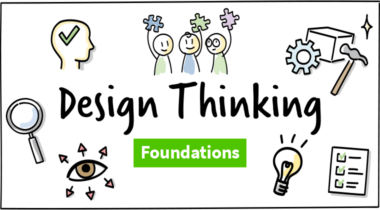 Design Thinking Foundations€299.00 (excl. VAT)
Design Thinking Foundations€299.00 (excl. VAT) -
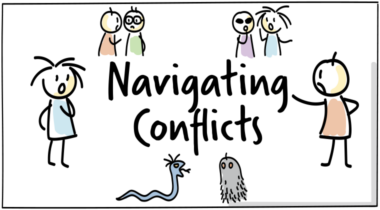 Navigating Conflicts€242.00 (excl. VAT)
Navigating Conflicts€242.00 (excl. VAT) -
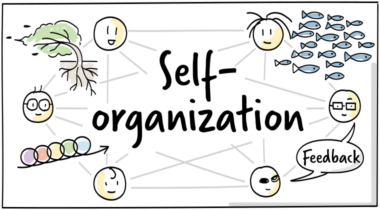 Self-Organization€79.00 (excl. VAT)
Self-Organization€79.00 (excl. VAT) -
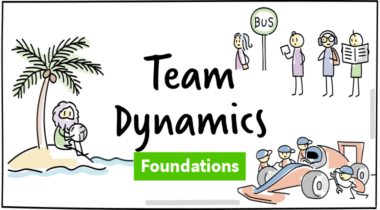 Team Dynamics Foundations€79.00 (excl. VAT)
Team Dynamics Foundations€79.00 (excl. VAT) -
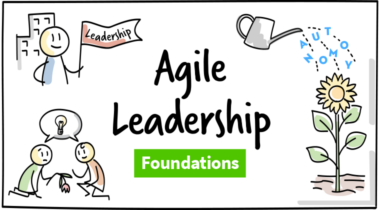 Agile Leadership Foundations€79.00 (excl. VAT)
Agile Leadership Foundations€79.00 (excl. VAT) -
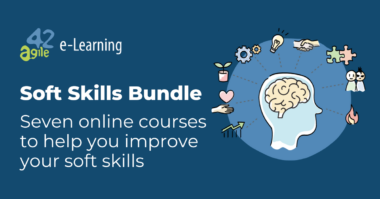 Soft Skills Online Courses Bundle€79.00 – €299.00 (excl. VAT)
Soft Skills Online Courses Bundle€79.00 – €299.00 (excl. VAT)
